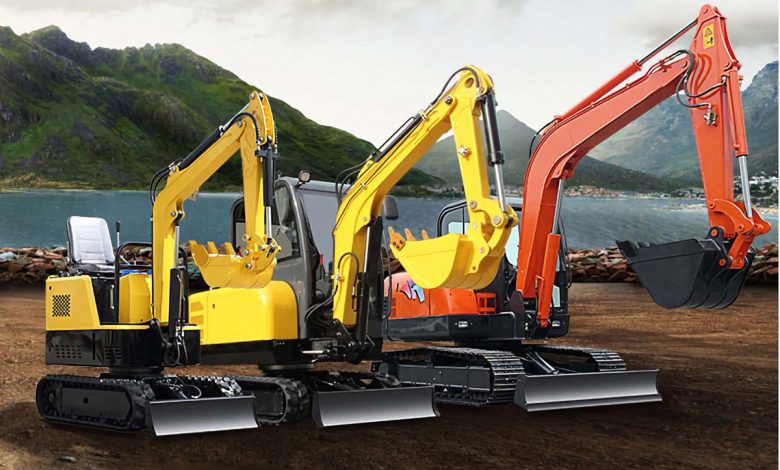How Do You Inspect a Mini Excavator Before Purchase?

Purchasing a mini excavator is a significant investment, whether you are buying it for construction, landscaping, or agricultural purposes. To ensure you get a reliable and efficient machine, it is essential to conduct a thorough inspection before finalizing your purchase. This blog will guide you through the steps to inspect a mini excavator for sale, helping you make an informed decision and avoid costly mistakes.
Exterior and Structural Inspection
When inspecting a mini excavator, the first step is to examine its exterior and structural components. This initial assessment can reveal signs of wear and potential issues that could affect the machine’s performance.
Check for Visible Damage
Start by walking around the mini excavator and examining it for any visible damage. Look for cracks, dents, rust, and signs of repairs. Pay close attention to high-stress areas such as the boom, arm, and undercarriage, as these parts are more prone to wear and damage.
Inspect the Undercarriage
The undercarriage is a critical component of a mini excavator, affecting its stability and performance. Check for excessive wear on the tracks or tires, and inspect the rollers, idlers, and sprockets for any signs of damage or wear. Ensure that the undercarriage components are well-lubricated and free of debris.
Examine the Boom and Arm
Inspect the boom and arm for any cracks, bends, or welds that could indicate previous damage or repairs. Check the hydraulic lines and cylinders for leaks, and ensure that the pins and bushings are tight and free of excessive wear. Any play or movement in these parts can affect the machine’s precision and stability.
Engine and Hydraulic System Inspection
The engine and hydraulic system are the heart of any mini excavator. A thorough inspection of these components is essential to ensure the machine’s reliability and performance.
Start the Engine
Starting the engine is an essential part of inspecting a mini excavator for sale. Listen for any unusual noises such as knocking, grinding, or excessive vibrations, which could indicate engine problems. Observe the exhaust for excessive smoke, which could be a sign of engine wear or fuel issues.
Check Fluid Levels and Conditions
Inspect the fluid levels, including engine oil, hydraulic fluid, coolant, and fuel. Low fluid levels or dirty fluids can indicate poor maintenance and potential issues. Check for any signs of leaks around the engine and hydraulic system, as leaks can lead to costly repairs.
Test the Hydraulics
Operate the boom, arm, and bucket to test the hydraulic system’s responsiveness and power. Ensure that the movements are smooth and precise, without any jerking or lag. Listen for any unusual noises from the hydraulic pump and cylinders, and check for any hydraulic fluid leaks.
Electrical System and Controls Inspection
A well-functioning electrical system and responsive controls are crucial for safe and efficient operation. Inspect these components carefully to ensure they are in good working condition.
Inspect the Electrical System
Check the battery terminals and wiring for any signs of corrosion or damage. Ensure that all lights, gauges, and warning indicators are functioning correctly. A faulty electrical system can lead to operational issues and costly repairs.
Test the Controls
Sit in the operator’s seat and test all the controls, including the joystick, pedals, and switches. Ensure that the controls are responsive and easy to operate. Check the display panel for any error codes or warning lights, which could indicate underlying issues.
Cab and Operator Comfort
The cab’s condition and the operator’s comfort are essential for efficient and safe operation. Inspect the cab thoroughly to ensure it meets your standards.
Examine the Cab Condition
Inspect the cab for any signs of damage, excessive wear, or poor maintenance. Check the windows, doors, and mirrors for visibility and functionality. Ensure that the seat is in good condition and adjustable, providing comfort for the operator.
Test the HVAC System
If the mini excavator is equipped with a heating, ventilation, and air conditioning (HVAC) system, test its functionality. A working HVAC system is essential for operator comfort, especially in extreme weather conditions.
Documentation and Maintenance Records
Reviewing the documentation and maintenance records of the mini excavator is crucial to understanding its history and ensuring it has been well-maintained.
Review Maintenance Records
Request the maintenance records for the mini excavator for sale. Regular maintenance is crucial for the longevity and performance of the machine. Review the records to ensure that the excavator has been well-maintained and serviced according to the manufacturer’s recommendations.
Verify Ownership and Warranty
Ensure that the seller has clear ownership of the mini excavator and can provide the necessary documentation for the transfer of ownership. If the excavator is still under warranty, verify the terms and conditions, and ensure that the warranty is transferable to the new owner.
Final Decision
After conducting a thorough inspection, take the mini excavator for a test run. Operate the machine in different conditions to assess its performance, stability, and ease of use. Pay attention to any issues or concerns that arise during the test run.
Negotiate and Finalize the Purchase
If the mini excavator meets your requirements and passes the inspection, negotiate the price with the seller. Use any issues identified during the inspection as leverage for negotiating a better deal. Once you agree on the price, finalize the purchase and complete the necessary paperwork.
Conclusion
Inspecting a mini excavator for sale before purchase is crucial to ensure that you invest in a reliable and efficient machine. By following these steps, you can identify potential issues, assess the overall condition of the excavator, and make an informed decision. A thorough inspection helps you avoid costly repairs and ensures that you get the best value for your investment. Whether you are buying a mini excavator for construction, landscaping, or agricultural purposes, taking the time to inspect it properly will pay off in the long run.





